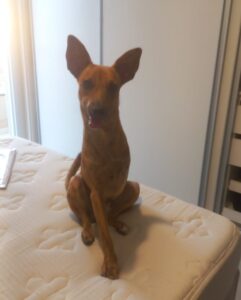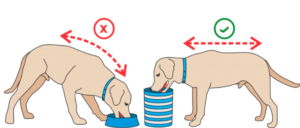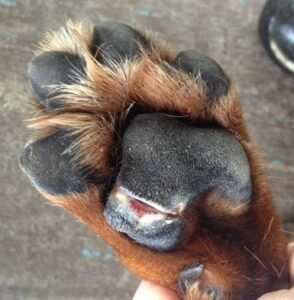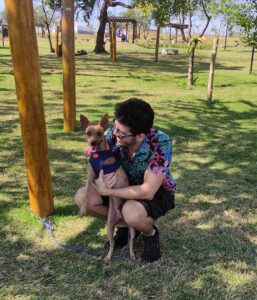Have you already crossed an amputee’s way in your everyday life? – For sure you did.
With or without the help of a prosthetic limb, an amputee is someone surviving everyday life with the challenges of having a partially or totally missing limb, along with dealing with curious people asking questions. We can’t deny that losing a limb is a very complicated experience that involves a grief process and an adaptation to a new and unexpected body image, along with rehabilitation and learning how to live with limitations.
When it comes to pets, an amputation usually comes as a solution for loss of limb function caused by pathology or trauma. The news here is that for your little buddy, no matter what species, problems are not so big. Read below some facts that may boost your motivation to invest in adopting a new member for your family, even if a little piece is missing.
1 – They adapt easily and fast:

Different from what happens if human beings after an amputation, a pet adapts normally very fast. After the removal of his front left paw, my dog Tigrinho (the perp) spent some days stumbling very often and noticed that something had changed. Was it enough to reduce his level of energy? The answer is no!
Actually, it seemed that instead of losing a problematic paw, he had been given an extra high functioning one. The everyday life of a domestic animal is not as complex as ours, so that a missing limb will indeed result in some challenges, due to large changes in body awareness and weight distribution, but not in the need to relearn how to live from scratch.
2 – There are no significant emotional issues:
After suffering an amputation, most people get very sad. In the case of a very painful cancer or severe loss of function, a patient may even desire to have a limb removed, in the majority of cases, though, losing an arm or leg means having life turned upside down.
Our four (or three) legged friends don’t go through this sort of crisis!
Your little partner will for sure notice that something has changed, but as weeks go by, it will become clear that life goes on without major implications. To give all of you an example, my dog was still partially under anesthesia when he decided to jump from the ground to the arms of my sofa…
My wife and I almost had a heart-attack watching that scene. Did he care? – No.
Other animals also don’t manifest any kind of prejudice or distinction towards amputee fellows.
3 – It is indeed necessary to take some extra care:
In the case of dogs, the major part of their weight is carried on their front paws. When one of them is suddenly missing, the remaining foot is overburdened, therefore, it’s recommended to be extra cautious concerning the following details:
- Meals: Elevating food and water bowls will spare your pal the effort of bowing down and/or keeping their balance, their paws and necks say thank you!

Specially useful guidance for amputee pets. - Jumps: If your pet loves joining you on your bed or sofa, consider purchasing a pet stair or ramp. For the remaining paws, sustaining the impact of jumping down to the ground may cause complications in the long run. This is specially valid for frontal amputation.

No, it’s NOT ok! - Paw health: Pay extra attention to the pads on the soles of your pets feet, they are responsible for impact absorption and temperature regulation. Since there is a paw missing, pads are also overworked.
- Joint health: Remaining joints can also be easily overburdened, don’t wait long to look for help in case of any swellings or hurts.
- Household slips: Provide your pet with less slippery grounds. They don’t need to be raw, but a dog with a missing leg has a loss in power of traction, specially in case of rear leg amputation, only one leg will be responsible for jumps and race starts. Many mats and carpets offer a good balance of soft and rough.
- Group fun: Other pets don’t manifest any sort of prejudice concerning amputee friends. Nevertheless, the lack of a limb may lead your pet to feel instinctively defensive or threatened in the presence of other dogs.
- Keep a healthy weight: Your pet will progressively age, having their remaining limbs under greater stress. A balanced diet and frequent exercise become even more important, an amputee pet is strictly forbidden to get fat.
4 – Adopt a special pet!

Opening your heart and home for a pet is not only very beautiful and selfless, it’s a highly rewarding experience in many ways. An amputee pet is first a pet, then an amputee, they have it harder to be adopted, though, because potential owners are often afraid and insecure. Keep in mind that the chemistry and compatibility you feel when you meet your potential new friend is far more important than having all limbs. If your heart beats for a pet that happens to be an amputee, trust that they will be as capable, amazing, loving and fun as a normal one.
